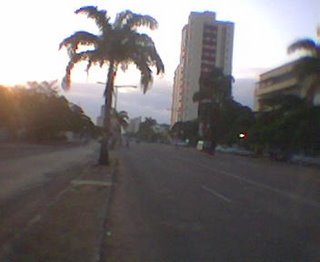
I have been involved in country-based online training courses run by
CIARIS/ILO in the area of Social Inclusion in Lusophone African countries over the last year or so. The issue of creating links between practitioners in different countries and also maintaining links between course participants after the course finishes (normally after 6 – 10 weeks) is one that has had me scratching my head more than once, I will confess. I would like to relate what we have attempted so far and invite comments or suggestions.
1) On the basis that initial contacts are more likely to be made when there is a specific motive for one or both parties to cooperate, we included a contacting task in the final part of a course for practitioners and university students in Mozambique. So, groups of participants had to collaborate in preparing a brief questionnaire on experience of Organizational Partnership which they were to send by email to organizations in their particular field (HIV/AIDS, Rural Poverty or Social Exclusion) and post the results online in the course space. We provided the lists of organisation and respective contact people from organisations who had collaborated with us in the past or from participants on previous courses.
The response rate was somewhat disappointing: of 10 emails with accompanying questionnaire sent out to organisations in Cape Verde, S Tomé and Guinea Bissau , only two received replies giving detailed information (both from previous course participants), one generated a brief social reply and one a promise of detailed response which did not materialise. This was after we had previously contacted these organizations requesting their cooperation.
The biggest problem, though, is that I don’t see these even these initial contacts generating much in the way of ongoing knowledge exchange and, at the same time, knowing the people involved on both sides and the quality of the work they are doing, I can see tremendous potential for collaboration.
2) We arranged for people on our present online facilitator training course in Mozambique to be enrolled in the
e/merge 2006 international online conference currently being run by the University of Capetown right now. Our participants encounter 2 difficulties in this type of online situation:
language of communication (English)
Net access – sporadic and slow even for people based in the capital, Maputo.
Even so, they are resourceful individuals who have adapted rapidly to collaborating online during the course, so I am curious to see how this conference participation works out for them.
3) On a course in Cape Verde we had planned for alumni from a previous online course in Guinea Bissau to enter as invited visitors and comment on coursework etc but in practice logistical problems arising from very limited Net access of the Guinea people and the time constraints of coursework, led to us having to abandon this strategy on this particular course. However these courses have been running for a short time and with time we are building up a list of interested and Net-savvy people in the African Lusophone countries.
I know that the kind of steps described here are not in themselves going to build a knowledge sharing community or CoP but they could serve as pointers perhaps.
In general I believe that two key issues revolve around the Whys and Hows:
Why?
People need motives and incentive to maintain online contacts when they have to overcome logistical problems of slow and difficult Net access and also the low priority given to this type of online community building in organisations in Southern countries.
How?
Which tools are most appropriate for people in this situation: e-mail (usually Hotmail or Yahoo), d-group, Google-group, LMS (Moodle), Portal, Blog, Wiki .
I realise that this entry has run on a bit so I think I’d better stop here but, as I said above, all observations and suggestions will be gratefully received.
Bill







